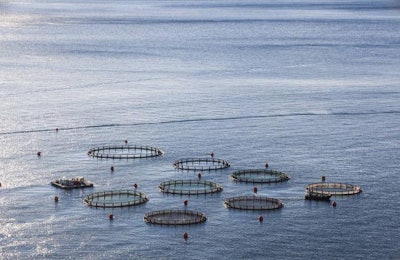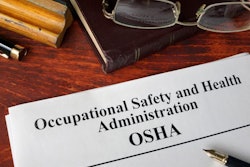
Standard aims to address the issue of unsustainable and irresponsible practices in the aquaculture feed supply chain
The Aquaculture Stewardship Council (ASC) has launched a Feed Standard to address the issue of unsustainable and irresponsible practices in the aquaculture feed supply chain.
According to the ASC, the Feed Standard requires that feed mills meet strict environmental and social requirements, source ingredients from socially responsible suppliers, and use environmentally responsible raw materials. Requirements on reporting of performance will also improve the transparency of the industry, reward environmental sustainability, and assist future research into responsible feed.
The Feed Standard will go into a 14-month “effective period,” which will allow auditors, feed manufacturers and their suppliers to familiarize themselves with it and prepare for certification. After that period, the Standard will become effective in fall 2022, when feed mills become eligible for certification. Farms will then have 24 months to switch to ASC-compliant feed in order to continue meeting the ASC Farm Standards.
“Aquaculture is already providing over half of the seafood consumed around the world, livelihoods to millions of people, and without it we will not be able to achieve food security for a growing global population with a low carbon footprint,” said Chris Ninnes, ASC CEO. “But this positive impact will be undone unless the feed used by the industry is sourced responsibly. ASC has spent the last decade incentivizing producers to reduce the impacts of their farms, and now we’re spreading this approach to the wider supply chain.
“We know many producers and feed manufacturers are already taking this issue seriously, and we want to reward them and incentivize others to follow suit to tackle what could be the biggest threat to the industry’s reputation.”
The Feed Standard takes the ASC’s approach to responsible aquaculture and extends it to the feed mills that manufacture aquafeed, as well as the suppliers of their ingredients. These mills will be the facilities audited against the standard, but they and farms will be given time to ensure their supply chains meet ASC requirements. The Standard will also incentivize more feed mills to work toward certification to meet growing demand from ASC farms.
The Feed Standard uses an improvement model for marine ingredients which requires feed mills to source from more sustainable fisheries over time. The model offers a unique opportunity for feed mills to work together with their fishmeal and fish oil suppliers to meet the increasing requirements. Ultimately, the major volume of marine ingredients needs to be derived from MSC fisheries.
For plant-based ingredients, as with marine based, mills will have to record and report all ingredients that make up more than 1% of a feed, and will need to take steps to ensure they have been responsibly sourced. Crucially, they will have to assess the risk of a particular ingredient contributing to deforestation or land conversion, and must commit to transitioning to a supply chain free from these key negative impacts.











